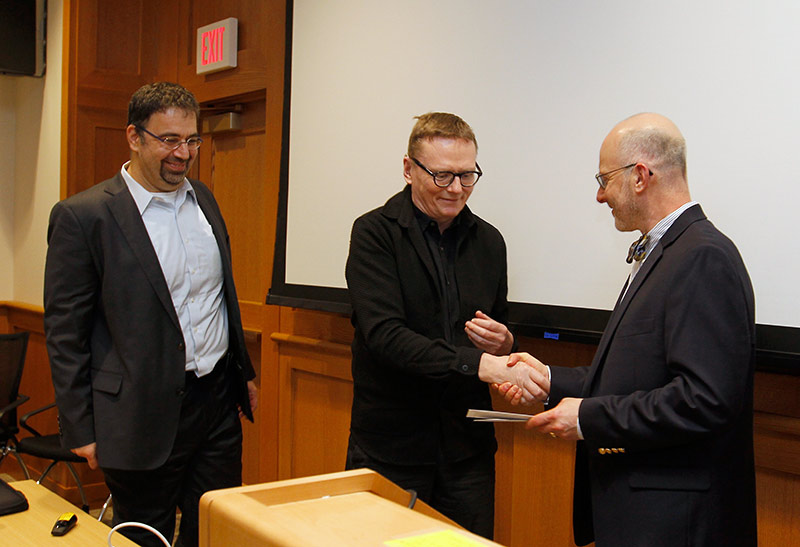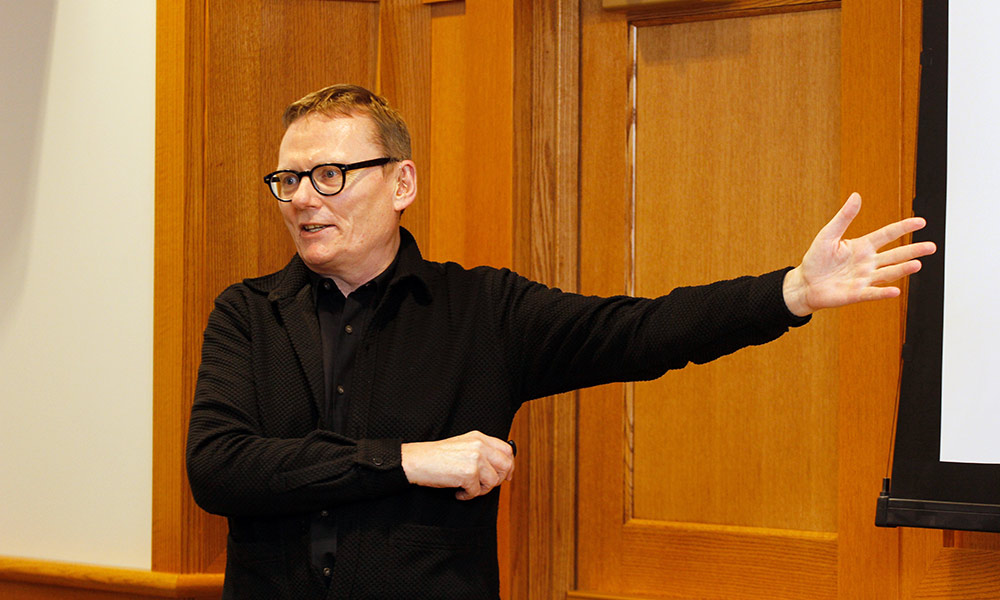Daron Acemoglu and James Robinson have been working together for decades, essentially building a new theory of political economy.
Acemoglu, the Elizabeth and James Killian Professor of Economics at the Massachusetts Institute of Technology, and Robinson, the Dr. Richard L. Pearson Professor of Global Conflict Studies at the University of Chicago, are (among other things) the co-authors of the book Why Nations Fail (Crown Publishing, a division of Random House, 2012), which examines the factors responsible for the political and economic success (or failure) of states. Arguing that existing explanations such as geography, climate, culture, religion, or the ignorance of political leaders are simply insufficient or flawed, the two scholars marshal wide-ranging historical evidence from the Roman Empire, the Mayan city-states, medieval Venice, and the Soviet Union, to Europe, Latin America, the United States, and Africa.
Prosperity, posit the Turkish-born American economist Acemoglu and the British political scientist Robinson, depends above all on the inclusiveness of economic and political institutions. “Inclusive,” they argue, means that large numbers of people have a say in the political decision making, as opposed to a small group that monopolizes control of political institutions. According to the duo, inclusive institutions promote economic prosperity because they provide an incentive structure that rewards talents and creative ideas.
Last week, the University recognized Acemoglu and Robinson for their work and awarded them the William H. Riker Prize in Political Science. The pair spoke on the River Campus about their latest book project, preliminarily titled The Race between State and Society.
“If you have better ideas for a title please let us know,” quipped Robinson, who is also faculty director of the Pearson Institute for the Study and Resolution of Global Conflicts at Chicago.

As part of the project the pair examines three archetypes of states—the inclusive state (Germany), the despotic state (China), and the weak, ineffective state (Liberia). The three-fold distinction hinges on the balance of power between state and society. Essentially, their argument goes, the despotic state is effective at getting things done but strives to weaken its people. In a weak state, too much control rests with the people, thereby rendering state institutions ineffective. Lastly, the inclusive state is marked by a healthy fusion of “a bit of despotism” with a participatory element of governance, such as elected assemblies, says Robinson.
“A despotic path might take you quite high, but it becomes problematic and eventually hurts economic growth,” notes Robinson. The researchers examine the balance of power of among various groups competing within a state, and how state institutions are organized, explains Acemoglu their ongoing project.
The biennial Riker Prize recognizes scholarly achievement by a social scientist that exemplifies and advances the scientific study of politics in the spirit of its late namesake. Riker, who chaired the Rochester political science department from 1962 to 1977, substantially built the department up from humble beginnings as just a three-faculty entity, and remained an active member of the department until his death at age 73 in 1993.
Created by students, friends, and colleagues of Riker’s, the $3,000 prize recognizes a sustained research program or coherent collection of published research that has advanced the scientific study of politics through theoretically informed study of real-world politics, creative and influential theoretical study of political phenomena, and the productive combination of theory and empirical study.
Ironically, while the Riker Prize committee was unanimous in its choice of Acemoglu and Robinson, Rochester political science professor James Johnson, who headed up the prize committee, argues that the late Riker probably wouldn’t have bought the duo’s premise.
“He would think that their basic conceptual framework—ideas about power and institutions—is flawed,” says Johnson, who argues that Riker’s work suggested “We could get game-theoretic outcomes without referring to power; we can use game-theoretic arguments to show why there’s really almost no such thing as institutions.”
But that probable disagreement, Johnson adds, is all part of a robust marketplace of ideas.





